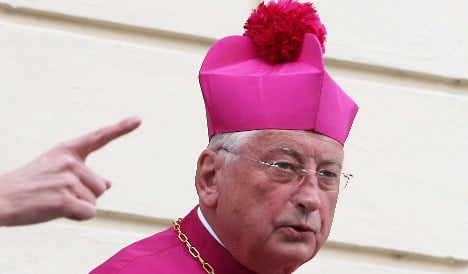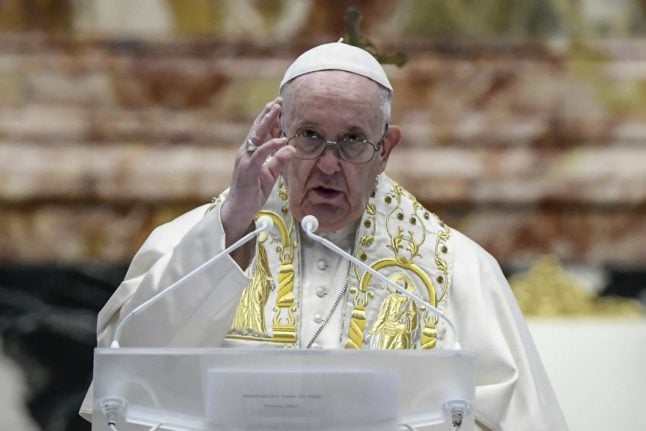It’s the perfect storm at exactly the wrong time for the Catholic Church: the personal tragedy of a man who was clearly not suited to be a bishop has smashed head-on into the stone cold attitude of his fellow clerics.
How devastating is it when the Archbishop of Munich decides to keep secret serious accusations against Walter Mixa “in his own interest,” but allows his own spokesman to mutter the former bishop of Augsburg’s stay in a psychiatric clinic is a first step to recovery? Spiritual leaders should know that someone who has been admitted to a psychiatric clinic does not need cynicism. He needs help.
In keeping with its tradition, the Church maintained its silence about Mixa for too long. This explains the force with which the affair has now erupted. But such vehemence is new. When Father Walter Mixa of the small Bavarian town of Schrobenhausen was appointed bishop of Eichstätt in 1996, the people of Schrobenhausen raised their eyebrows at first. But they did not speak up, because in a good Catholic area one does not dispute the local priest.
Similarly, when Mixa’s transfer to Augsburg was imminent in 2005, rumours of unseemly sexual behaviour emanated from the seminary of Eichstätt, but they did not trickle through to the key Church officials because the wisdom of the Vatican was not to be questioned.
It may also be true that objections were not heeded – or were not allowed to be heeded – in the higher rungs of the clergy hierarchy, because in the last few decades the Vatican has systematically barricaded itself from all protests affecting bishop appointments. When conflicts arose, as in the case of Joachim Meisner in Cologne, the Vatican has often preferred to force through its own candidates rather than bow to the wishes of a “rebellious” Church congregation.
The balance of power within the Church also protected Mixa, since he belonged to the conservative wing of the Bishops’ Conference, which was not willing or able to accept the weakening of its position. Such reflexes have made everything much worse. They have not only damaged the reputation of a single faction, but of the entire Church.
The massive scope of child abuse scandal at Catholic institutions has force Church officials to end the era of leaden silence. Under John Paul II, it would have been unthinkable to see bishops question one of their own in public, destroying the “unity of the episcopate.” But Pope Benedict XVI has allowed this to happen. He does not defend the indefensible; he prescribes a course of self-purification for his Church.
But the pontiff has not offered any actual suggestions for what institutional reforms could result from this self-purification – neither for bishop appointments, dialogue with the church laity, nor priest celibacy. Benedict XVI is certainly closing one epoch, but as yet he is failing to open a new one.
This commentary was published with the kind permission of Berlin newspaper Der Tagesspiegel, where it originally appeared in German. Translation by The Local.




 Please whitelist us to continue reading.
Please whitelist us to continue reading.
Member comments